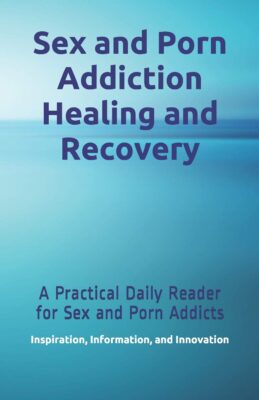 Scott Brassart
Scott Brassart
In a previous post, I discussed the concept of “negativity” and how a negativity bias held back my early attempts at recovery. In fact, I am now certain there is a direct correlation between negativity and relapse. Similarly, I believe there is a direct correlation between developing and maintaining a positive outlook and staying sober.
Many of the most useful lessons I learned in early sobriety involve changing my mindset from negative to positive. In a relatively recent Wednesday evening Addiction and Recovery webinar, my friend and colleague Dr. David Fawcett spoke about the power of having a positive attitude and presented a number of ways to achieve that, and his talk was highly reminiscent of my earliest days in recovery. Useful suggestions that I heard 20 years ago that I heard again from Dr. Fawcett include:
- Focus on what you can do, not on what you can’t do. Often in early recovery, we find ourselves focusing on what we can’t do rather than on what we can do. This makes it tough to stay sober. So, instead of brooding about the drink/drug/sex we can no longer have, we should celebrate the freedom of choice and action that sobriety brings. To help with this, we can create a Circle Plan for Recovery, with the Outer/Green Circle (the largest circle) listing fun things to do in sobriety. Most of us find that “living in” our Outer/Green Circle makes it much easier to stay out of our Middle/Yellow and Inner/Red Circles (which list slippery and non-sober behaviors, respectively).
- Focus on the good stuff. An ingrained negativity bias is usually a long-held habit that is tough to break. If we can intentionally focus, at least for a few minutes, on the good things in life, the spell of negativity can be broken.
 Use positive affirmations. Yes, affirmations sound corny, especially to those of us who remember Stuart Smalley on Saturday Night Live. But the simple truth is they work. Both Dr. Fawcett and I are big believers in coming up with a set of positive affirmations – worded in the present, as if they are already true – and then stating those affirmations aloud at least three times each day for at least 30 days. Usually around the two-week mark they start to kick in and change your attitude. A list of possible affirmations can be found at this link.
Use positive affirmations. Yes, affirmations sound corny, especially to those of us who remember Stuart Smalley on Saturday Night Live. But the simple truth is they work. Both Dr. Fawcett and I are big believers in coming up with a set of positive affirmations – worded in the present, as if they are already true – and then stating those affirmations aloud at least three times each day for at least 30 days. Usually around the two-week mark they start to kick in and change your attitude. A list of possible affirmations can be found at this link.- If you’re on the wrong track (feeling negative), re-start your day. If you’re like me, some days just aren’t great. You wake up on the proverbial wrong side of the bed and you’re grumpy, or something happens that pushes your day off track, and you don’t much like it. When that happens, it’s perfectly OK to re-start your day. To be honest, I find myself re-starting my day at least once per week. (Part of my re-start always involves the next item on this list: gratitude.)
- Practice gratitude. A great way to combat “stinking thinking” is to create a gratitude list. Writing a ten-item gratitude list nearly always counteracts almost any trigger toward negativity. Moreover, research tells us that the primary difference between people who self-describe as mostly happy and people who self-describe as mostly unhappy is gratitude. Happy people are grateful for what they have. It doesn’t matter what they have (or don’t have), they are grateful for it. So, if you want to be happy, start with gratitude.
- Find humor and laughter in your day. There is an old saying: Laughter is the best medicine. And this is absolutely true, as long as the laughter is genuine and not based in negativity.
- View mistakes and failures (including slips and relapses) as learning opportunities. Entering a process of recovery does not suddenly render us pure as the driven snow. Nor does it give us superpowers. We will make mistakes. We will fail. And when those things happen, we have a choice to make. Do we lapse into shame and negativity: I’m not good enough, I’ll never get this right, so I might as well stop trying. Or do we view this as an opportunity for learning and growth: I made a mistake but I don’t need to make it again, and I can use this newfound knowledge to become a better person.
- View challenges as opportunities for growth. Life constantly presents difficulties: financial challenges, injury, illness, flat tires, tornadoes, and all sorts of other crazy and totally unexpected stuff. And most people, especially addicts, because we’ve spent our entire lives avoiding rather than facing and overcoming challenges, are stuck when we run into one. The good news is we can develop what is known as obstacle immunity. This is where we learn how to face and overcome obstacles (usually because we’re doing it on a regular basis). When we develop obstacle immunity, we sometimes find that we actually enjoy facing and overcoming life’s challenges.
- Focus on the current moment rather than the past or future. In the negative bias stage of my early recovery, I usually had one foot in the past and the other foot in the future. I was rarely, if ever, in the moment. This fed my depression and anxiety. The past was not something I could change, and my thoughts of the future were always about the worst-case scenario. My first sponsor told me that I was so busy living in the wreckage of the past and the potential wreckage of my future that I couldn’t possibly enjoy the present. Occasionally, to help bring me into the current moment, he would look at me and ask, “Where are your feet?” I would then look at my feet and remember when/where I was, and then I could focus on what was most important at that moment.
- Practice, mindfulness, meditation, and other grounding techniques. In addition to asking ourselves the very simple questions like “Where are your feet,” there are countless grounding techniques that work wonders – mindfulness, meditation, yoga, breathwork, visualization, and more. Dr. Fawcett published an article on grounding techniques that explains his personal favorites, and I highly recommend reading it.
This brief list of ways to develop positivity is hardly the full gamut. There are hundreds of other ways to go about changing one’s outlook from negative to positive. If you have techniques that work for you that you would like to share with others, please email them to me (scott@seekingintegrity.com). I would love to collect reader suggestions and post an updated version of this article.
* * * * * * * * * *
If you or someone you care about is struggling with sex, porn, or substance/sex addiction, help is available. Seeking Integrity offers inpatient treatment for sex, porn, and substance/sex addicts, as well as low-cost online workgroups. At the same time, SexandRelationshipHealing.com offers a variety of free webinars and drop-in discussion groups, podcasts, and more.
